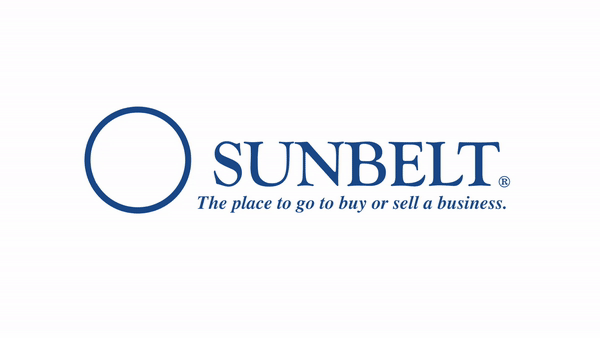How Much Can I Sell My Business For?
- Dan Elliott

- Nov 16, 2023
- 3 min read
Updated: Dec 27, 2023

Selling a business is often a significant decision in an entrepreneur's life. It involves various factors, from financial to emotional considerations. But one question that constantly looms is: "How much can I sell my business for?" The answer depends on numerous variables, including a business value.
In general, business values typically fall within a range of one to five times their annual cash flow. To determine your earnings multiplier, evaluate critical aspects affecting your future, like profit trends, revenue, customer base, and industry position.
Understanding the Basics
The selling price of a business typically depends on its profitability, industry trends, market demand, and other specific characteristics like its location and customer base. A common method used to determine a company's worth is the earnings multiplier. This approach involves multiplying your business's annual profits by a certain factor, which varies depending on the industry and market conditions.
To determine your business's market value, use various methods like assessing your assets, comparing current revenue and profits to past sales, and considering earnings-based formulas.
Finding the right pricing balance is crucial; setting a price significantly below market value may deter buyers while pricing it too high can discourage offers.
Seek guidance from professionals like Sunbelt Texas when in doubt, as they specialize in business sales and can help you achieve the best business values for all parties involved.
Earnings Multiplier
For example, if your business makes $100,000 annually and similar businesses in your industry have sold for three times their annual earnings, it could be worth around $300,000. However, this is a simplistic approach and does not account for many other important factors.

Business Assets
Another critical factor in determining your business's worth is its tangible and intangible assets. Tangible assets include property, equipment, inventory, and cash. Intangible assets, on the other hand, encompass elements like brand reputation, customer loyalty, patents, and trademarks. These assets can significantly boost your business's value.
Market Conditions
Market conditions are pivotal in determining how much you can sell your business for. If your industry is growing and there's a high demand for businesses like yours, you can demand a higher price. On the other hand, if the market is shrinking, it can lower the value of your business.
Growth Potential
Prospective buyers don't just consider your business's current performance; they also evaluate its future growth prospects. A business growing well and riding new trends can sell for a higher price.
Financial Health
Your business's financial health, including its revenue consistency, profit margins, and debt levels, can significantly influence its selling price. Businesses with stable revenues, high-profit margins, and low debt are typically more attractive to buyers and may command a premium.

Business Dependence
Highly dependent businesses on one or a few key individuals may pose a risk to potential buyers, potentially reducing their value. Conversely, businesses with a good team and well-documented processes capable of running independently of the owner tend to command higher valuations.
Maximize The Sale of Your Business
Now that you understand the value of your business, you're better prepared for your decision. Remember, you don't have to go through this alone. Sunbelt Texas is here to assist at every stage. Ready to learn more about the next steps in selling your business? Contact Sunbelt Texas for a complimentary and confidential valuation.
FAQs
Is my business worth selling?
To know if your business is worth selling:
Calculate your business's value by adding all your assets, like equipment, real estate, and inventory.
Do the same for your liabilities, which include loans and debts.
Subtract the liabilities from your assets to know your business's book value.
What are some common valuation methods?
Market-based valuation, adjusted net asset method, discounted cash flow method, seller discretionary earnings method, and capitalization of cash flow method are some popular valuation approaches.
What is Seller's Discretionary Earnings (SDE)?
Seller's discretionary earnings (SDE) is a financial metric that assesses a small business's cash flow, representing the income available to the owner. It begins with the business's net income and incorporates owner compensation, non-recurring expenses, and other discretionary costs.
Why is it beneficial to use a broker when selling my business?
Experienced business brokers specialize in valuation, negotiation, mediation, and sales. They have a deep understanding of business dynamics, including industry benchmarks and key performance indicators. They leverage this knowledge to enhance your business's selling prospects.
How do I know when I have a good offer for my business?
A good offer for your business should be within the estimated valuation range, consider the business's worth and future prospects, and allow for negotiation.





Comments